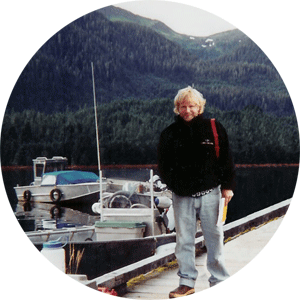Imagine you’re a single mom with a permanent physical disability – waiting for federal disability benefits to be approved – and are told you’ve reached your cash assistance lifetime limit. Or maybe you’re struggling to make ends meet, using food assistance, only to be told you were “overpaid” and have to pay back benefits from the last six months. Where can you turn?

Solid Ground’s team of Benefits Attorneys (l to r: Stephanie Earhart, Katie Scott and Sara Robbins) just might be able to help. Serving both individuals and families, our attorneys primarily represent people having difficulties accessing or maintaining state benefits from the Department of Social and Health Services (DSHS).
But it doesn’t stop there: Beyond helping people access benefits, our attorneys work with DSHS to make the system more equitable for thousands of people across our region.
From individual to systemic advocacy
Lead Benefits Attorney Stephanie Earhart explains, “We’re in DSHS Region 2, covering five counties from King all the way to the Canadian border. We meet quarterly with the Regional DSHS Administrator to tell them what we’re seeing on the ground. And if we make complaints or say we need systems change, they listen.”
One type of case our attorneys deal with is families applying for Temporary Assistance for Needy Families (TANF) cash assistance. In Washington state, there’s a 60-month lifetime TANF limit and very few ways to qualify for an extension. These include families experiencing domestic violence, adults living with severe and chronic disabilities, and people taking care of a child or adult living with a disability.
Yet Stephanie and her team noticed that these extensions were often denied for people who were clearly eligible. “We were seeing two problems: people eligible for the family violence extension weren’t getting it, and people eligible for the disability extension weren’t getting it.”
Through outreach events, trainings and lectures, Stephanie publicized the time limit extension availability and our willingness to appeal denials: “If your family has zero income, somebody disabled in the household, or somebody dealing with family violence, they should still be on TANF. Period.” After several favorable decisions overturning TANF extension denials, Stephanie and her team set their sights on change at the policy level.
Collaborating for success
Teaming up with other advocates from the Northwest Justice Project, they facilitated a meeting in Olympia with DSHS administrators and the Attorney General’s office. “We have really good working relationships with them, and they know that we don’t come to them lightly,” says Stephanie. “So this year, when we advocated for DSHS to rewrite its policy manual around the family violence time limit extension, they took our concerns seriously and improved the way they screen clients for this exception and staff training on the issue.”
Also, our attorneys convinced DSHS to clarify how disabilities cases should be handled. As a result of their recommendations, DSHS changed the law to include a new disability time limit extension. “They actually agreed to do it, which was huge! I nearly fell out of my seat when I found out,” Stephanie recalls. So now, if a family member meets the eligibility criteria for ABD (Aged, Blind or Disabled), they can get a TANF extension.
“The work we’re doing is very real,” says Stephanie. “I’ve learned so much from the people we serve. Any of us could end up in a hard situation at some point, and it means everything to me that I can do this work now.”
The same end goals
Currently, our attorneys are working to ensure that state food assistance recipients aren’t saddled with unpayable debt when DSHS miscalculates their benefits. According to federal law, recipients are liable for any overpayment of food assistance even if the overpayment was caused exclusively by DSHS’s mistakes. For families living on the edge of poverty, repaying this debt is usually impossible.
Our attorneys represent people facing this situation in hearings and negotiations with the Office of Financial Recovery to show financial hardship and get the entire overpayment waived or put on a payment plan. While helpful on a case-by-case basis, this strategy doesn’t solve the systemic problem: Many people who qualify for a hardship waiver don’t even know about our services or that such a waiver exists.
So now, Stephanie and a Northwest Justice Project attorney are collaborating with the Attorney General’s office, the Office of Financial Recovery and DSHS to rewrite the policy manual regarding overpayments and hardship waivers. “The hope is that DSHS will analyze hardship when they assess overpayments, rather than waiting for clients to raise the issue, which is not something the current regulations require them to do,” she says.
“That’s why our working relationship with DSHS is really important; we can go a lot farther by collaborating. When you sit down at a table, especially with the policy makers, you realize they often want the same things that we do for our clients.”
For more info on Family Assistance, contact 206.694.6742 or familyassistance@solid-ground.org.
‘Changing systems, changing lives’ is the lead article from Solid Ground’s Fall 2015 print newsletter. Sign up here to receive the entire newsletter by snail mail!
Filed under: Groundviews | Tagged: advocacy, DSHS, legal help, public benefits, systems change | Leave a comment »








